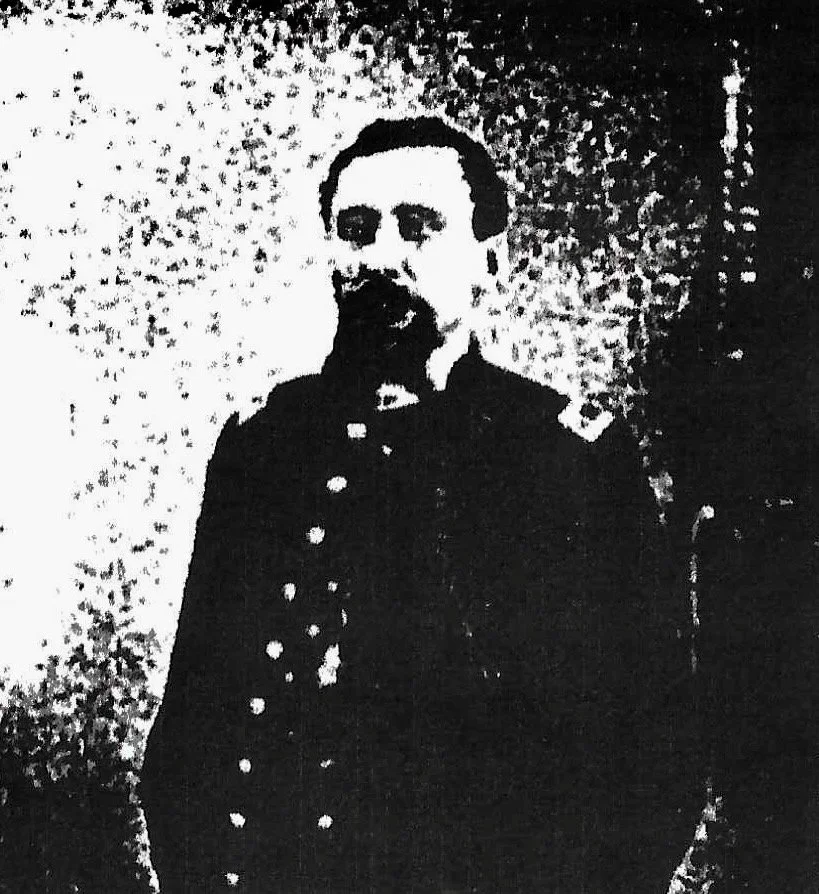Richmond Melendy
Richmond W. Melendy was one of the first students at Hillsdale College. In his address at Richmond’s grave, Judge J.C. Patterson declared that the deceased “was no ordinary man.” He arrived at the college in 1854 without influential friends or much money … and with a right arm that was withered and dangled uselessly at his side. This could have been the kiss of death, identifying him as “less than.” But his mental gifts, force of character, tireless energy and ambition made him “more than.” With a quick wit and sense of humor, a warm heart and generous nature, he quickly became a favorite with his fellow students. Richmond was a serious student as well as a leading organizer and charter member of the Alpha Kappa Phi social fraternity.
He took a deep interest in the great political questions that were coming to the fore in the years before the “Rebellion.” With that most awful war looming on the horizon, through his eloquence he was able to persuade enough friends from Hillsdale College to form a company and enlist with him. The assigning of ranks in the army was pretty loose. Many times it was based on who the men in the company elected. Richmond’s company elected him second lieutenant. Then they all went off to the camp of instruction and began to learn how to be soldiers. When it came time to be mustered into the United States army, the officer in charge refused to admit Richmond because with only one arm he couldn’t hold a musket. Richmond was stunned, but not his friends. Without hesitation and as one, they left the line and refused to sign the roll and take the oath of loyalty unless he was also accepted. The devotion of Richmond’s friends convinced the officer to welcome Richmond Melendy into the 29th Indiana Infantry. Powerful and strong, he managed exceptionally well with only his sword.
Richmond led his men with bravery through many battles, including Shiloh, the siege of Corinth and at Stone River. It was at Stone River that Col. Jasper M. Dresser, a Hillsdale College fraternity brother of Richmond, was struck by a piece of shell. Bleeding profusely, he began to slip from his horse when Richmond caught him with his left arm and carried him over his shoulder to a sheltered nook.
After serving three years and being honorably discharged, Richmond served as Judge Advocate and Provost Marshall until the war was over. As a civilian, Richmond continued to stand out because of his intelligence and magnetic personality. He became a lawyer, and in January 1873 he was appointed circuit judge of the 15th Circuit.
JoAnne P. Miller

